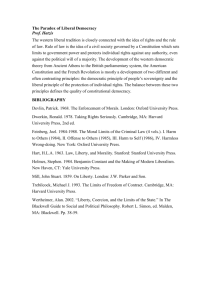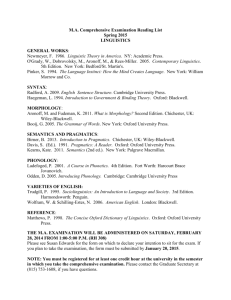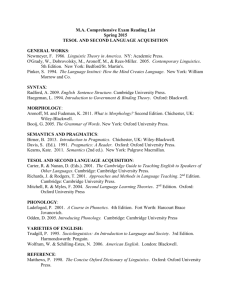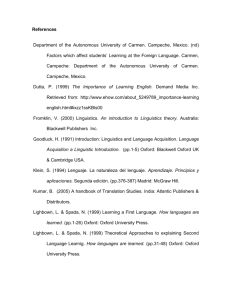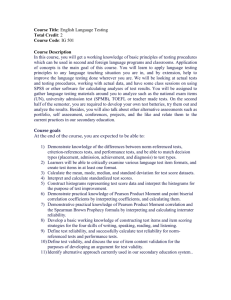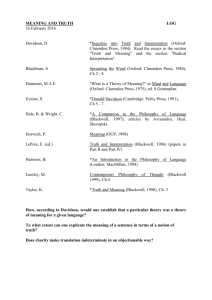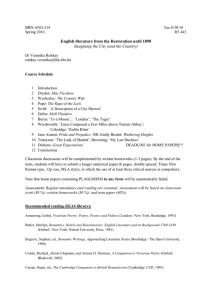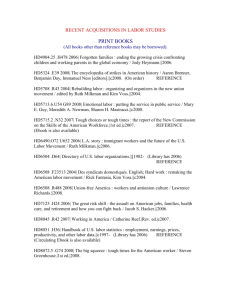Higher Education & Environmental Issues
advertisement
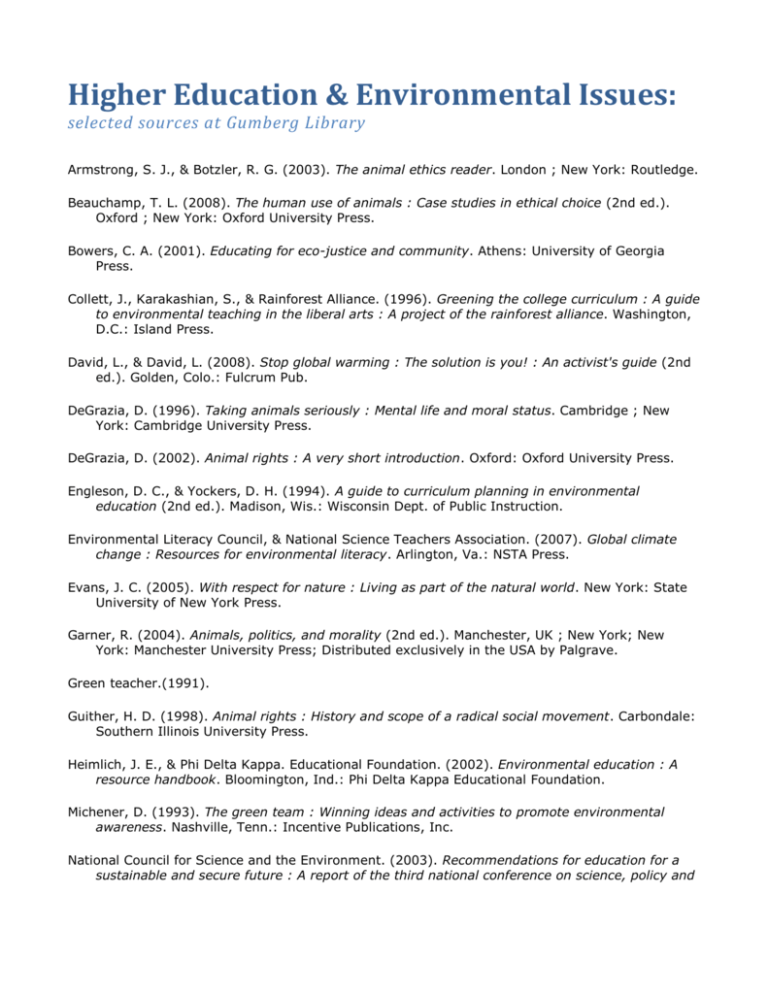
Higher Education & Environmental Issues: selected sources at Gumberg Library Armstrong, S. J., & Botzler, R. G. (2003). The animal ethics reader. London ; New York: Routledge. Beauchamp, T. L. (2008). The human use of animals : Case studies in ethical choice (2nd ed.). Oxford ; New York: Oxford University Press. Bowers, C. A. (2001). Educating for eco-justice and community. Athens: University of Georgia Press. Collett, J., Karakashian, S., & Rainforest Alliance. (1996). Greening the college curriculum : A guide to environmental teaching in the liberal arts : A project of the rainforest alliance. Washington, D.C.: Island Press. David, L., & David, L. (2008). Stop global warming : The solution is you! : An activist's guide (2nd ed.). Golden, Colo.: Fulcrum Pub. DeGrazia, D. (1996). Taking animals seriously : Mental life and moral status. Cambridge ; New York: Cambridge University Press. DeGrazia, D. (2002). Animal rights : A very short introduction. Oxford: Oxford University Press. Engleson, D. C., & Yockers, D. H. (1994). A guide to curriculum planning in environmental education (2nd ed.). Madison, Wis.: Wisconsin Dept. of Public Instruction. Environmental Literacy Council, & National Science Teachers Association. (2007). Global climate change : Resources for environmental literacy. Arlington, Va.: NSTA Press. Evans, J. C. (2005). With respect for nature : Living as part of the natural world. New York: State University of New York Press. Garner, R. (2004). Animals, politics, and morality (2nd ed.). Manchester, UK ; New York; New York: Manchester University Press; Distributed exclusively in the USA by Palgrave. Green teacher.(1991). Guither, H. D. (1998). Animal rights : History and scope of a radical social movement. Carbondale: Southern Illinois University Press. Heimlich, J. E., & Phi Delta Kappa. Educational Foundation. (2002). Environmental education : A resource handbook. Bloomington, Ind.: Phi Delta Kappa Educational Foundation. Michener, D. (1993). The green team : Winning ideas and activities to promote environmental awareness. Nashville, Tenn.: Incentive Publications, Inc. National Council for Science and the Environment. (2003). Recommendations for education for a sustainable and secure future : A report of the third national conference on science, policy and Higher Education & Environmental Issues: selected sources at Gumberg Library the environment : January 30-31, 2003, washington, D.C. Washington, D.C.: National Council for Science and the Environment. Orr, D. W. (1992). Ecological literacy : Education and the transition to a postmodern world. Albany: State University of New York Press. Orr, D. W. (1994). Earth in mind : On education, environment, and the human prospect. Washington, DC: Island Press. Postma, D. W. (2006). Why care for nature? : In search of an ethical framework for environmental responsibility and education. Dordrecht: Springer. Scott, W., & Gough, S. (2003). Sustainable development and learning : Framing the issues. London ; New York: RoutledgeFalmer. Scully, M. (2002). Dominion : The power of man, the suffering of animals, and the call to mercy (1st ed.). New York, N.Y.: St. Martin's Press. Singer, P. (2006). In defense of animals : The second wave. Malden, MA: Blackwell Pub. Sorabji, R. (1995). Animal minds and human morals : The origins of the western debate. Ithaca, N.Y.: Cornell University Press. Steiner, G. (2005). Anthropocentrism and its discontents : The moral status of animals in the history of western philosophy. Pittsburgh, Pa.: University of Pittsburgh Press. Thomashow, M. (1996; 1995). Ecological identity : Becoming a reflective environmentalist (lst MIT Press pbk. ed.). Cambridge, Mass.: MIT Press. University Leaders for a Sustainable Future, & MCB University Press. (2000). International journal of sustainability in higher education. University of Bath. (1995). Environmental education research. White, T. I. (2007). In defense of dolphins : The new moral frontier. Malden, MA: Blackwell Pub. Zimmerman, M. (1995). Science, nonscience, and nonsense : Approaching environmental literacy. Baltimore: Johns Hopkins University Press.

